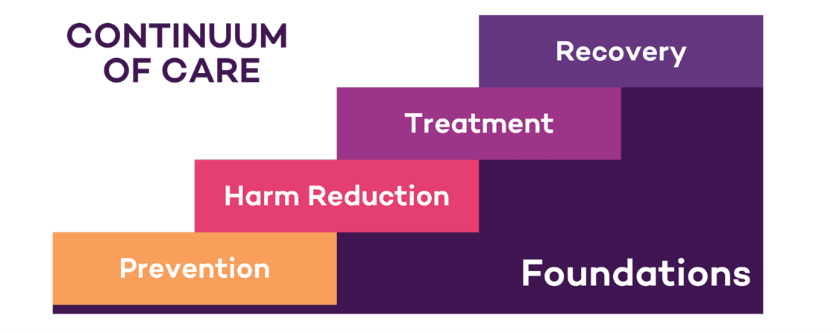
The NGA Center for Best Practices welcomed state teams from Delaware, Maryland, Minnesota, and Missouri to Phoenix, Arizona on January 25 and 26, 2024 to kick off the Policy Academy on Overdose Prevention Across the Continuum. Through this policy academy, NGA will support these four states over six months as they implement overdose prevention recommendations from the Roadmap NGA published in August 2023.
During the kick-off meeting, state teams presented their goals and projects, heard from the CDC about priorities and resources for supporting states in overdose prevention, and heard from subject matter experts. The meeting covered a range of topics including: policies that incorporate equity across the Substance Use Disorder (SUD) continuum of prevention, harm reduction, treatment, and recovery; strategic financing challenges and opportunities in overdose prevention; building consensus and incorporating community voice; key considerations for evaluation in overdose prevention; and implementation of recovery friendly workplace initiatives. Attendees also engaged with facilitators and their fellow state team members in a dynamic and interactive action planning process. State teams refined their goals for the policy academy, discussed strengths, challenges, opportunities, and dangers, and identified action steps, key players, and a timeline to keep their projects moving forward.
State Projects
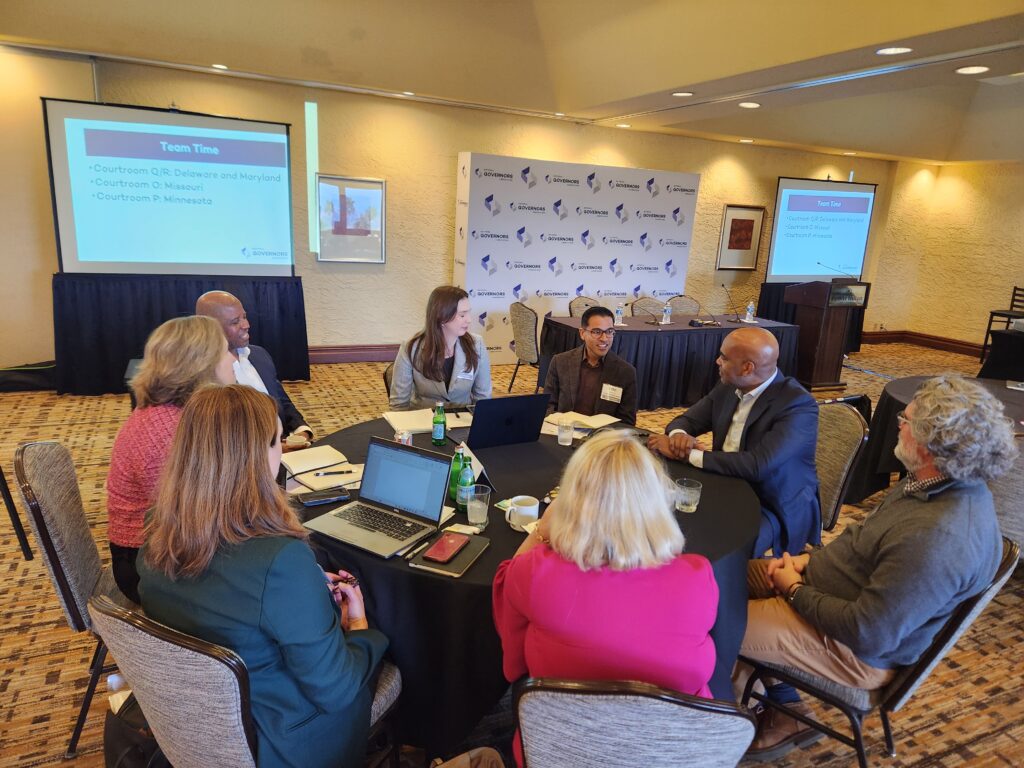
Participating teams are pursuing ambitious and critically important projects in this policy academy to prevent overdoses in their states. Delaware’s project to implement a new Recovery Friendly Workplace program (i.e., Recovery-Ready Workplace) focuses on the Recovery pillar of Continuum of Care roadmap. The project is led by the Behavioral Health Consortium, an advisory body within the Office of Lt. Governor Bethany Hall-Long. The First State will be working to understand the needs of people with SUD in the workplace to support them in obtaining and sustaining gainful employment, which is a critical part of maintaining recovery. This initiative will actively engage employers to change attitudes and culture, reduce stigma, and better support employees and employers. Recovery Friendly Workplaces aim to equip employers to hire and better support people in recovery; to this end, the core team includes representation from internal agencies and external partners, such as the Delaware Contractors Association and Delaware Restaurant Association.
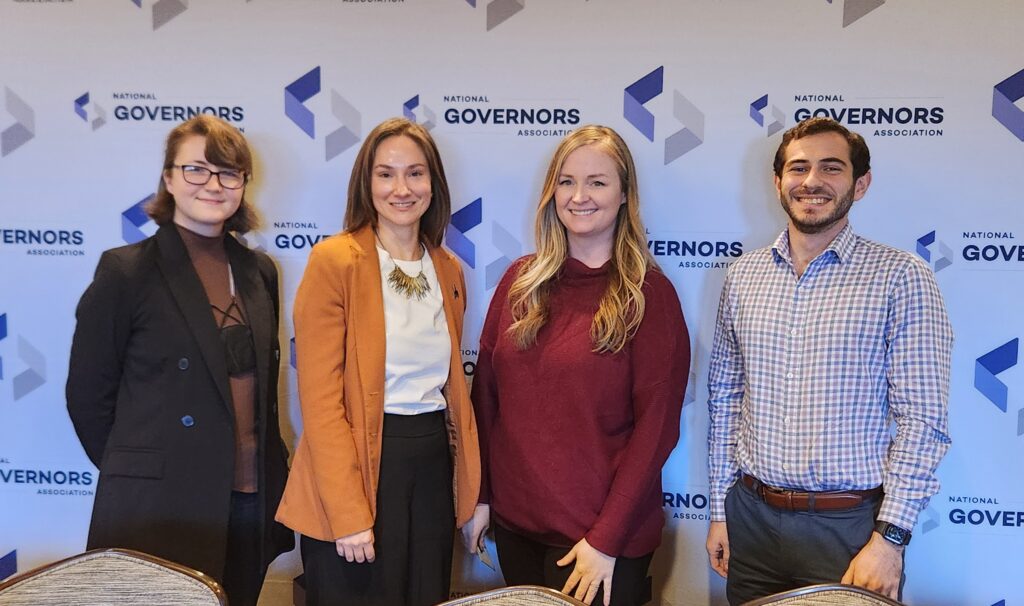
Maryland’s project also focuses on supporting people in recovery in the workplace, along with their employers. The Maryland Department of Labor launched a Recovery Friendly Workplace pilot with support from the state’s Department of Health Behavioral Health Administration. Maryland’s participation in NGA’s policy academy will help the state implement and expand this pilot, which has sites across three high-need regions of the state. Similar to Delaware’s initiative, this pilot focuses on the state engaging with employers, providing education, resources, and guidance to help them adopt workplace policies that are supportive of people with SUD. The project is also focused on promoting safe and healthy workplaces and advancing a culture shift towards de-stigmatizing SUD and recovery. Maryland’s model uniquely utilizes tiered levels of engagement for employers, allowing them to participate in various ways.
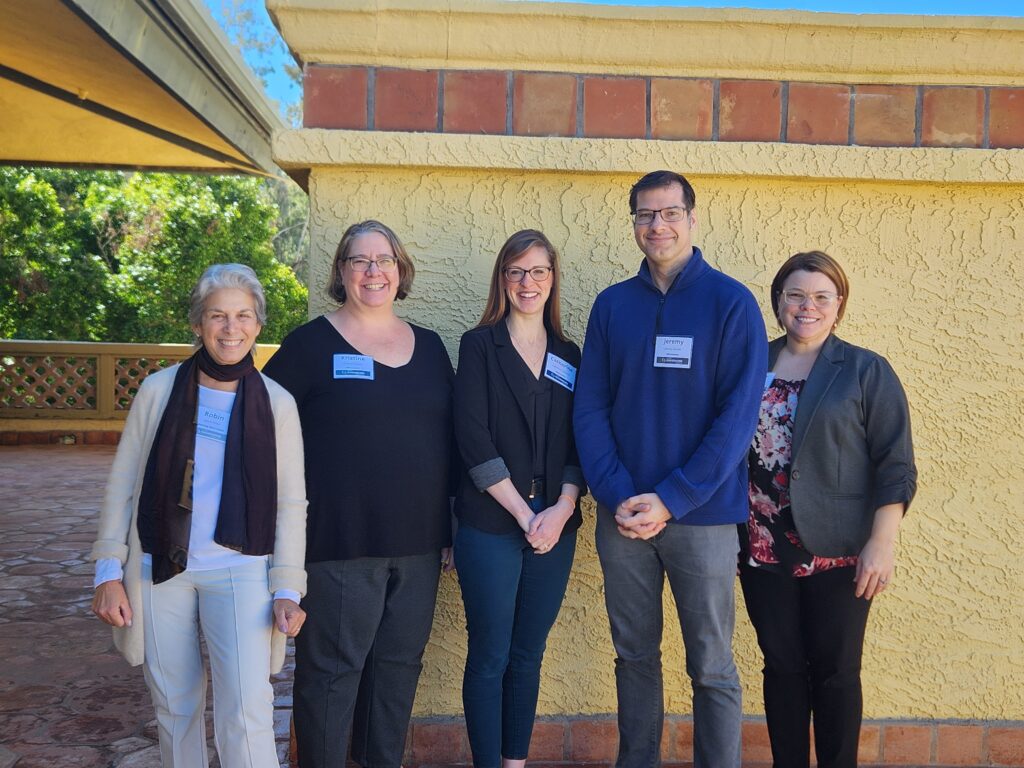
Minnesota is leveraging their participation in this policy academy to strengthen the cross-agency relationships that set a strong foundation for overdose response efforts and work towards the One Minnesota Goal: to reduce the impact of the opioid crisis on Minnesotans, their families, and their communities. The Minnesota project team—which includes representation from the new Office of Addiction and Recovery, the Department of Health, and the Department of Human Services—will map out existing areas of work, funding sources, and investments in programs and services along the SUD continuum of care. This process will allow the state to identify opportunities for alignment of efforts, establish a cadence of cross-agency communication and collaboration, and foster shared messaging.
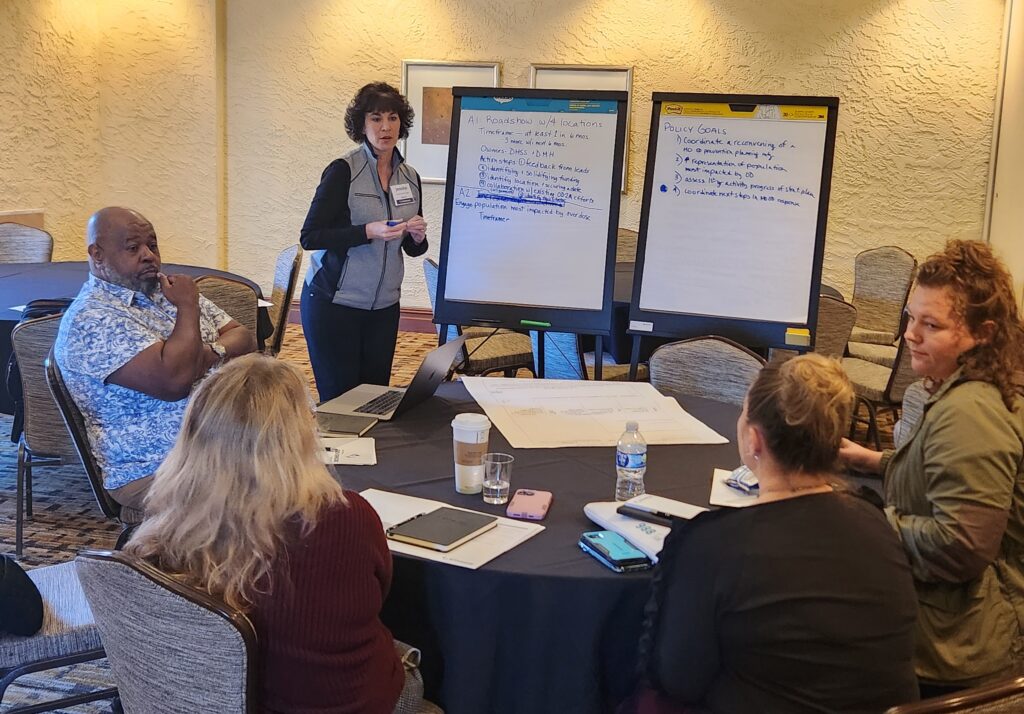
Missouri’s policy academy team brings together staff driving overdose response efforts in the Department of Mental Health and the Department of Health and Senior Services. As part of their participation in the policy academy, Missouri will begin planning a process of gathering community input, with a commitment to increasing representation and participation of populations most impacted by overdose. The state is also working towards cross-agency alignment as they assess progress made in year one of the state’s overdose response strategic plan and coordinate the next steps. As a result of this project, the state is hoping to improve communication and collaboration and streamline efforts to prevent overdose.
These teams are committed to preventing overdose in their states and improving resources and quality of life for people with SUD and their families. The NGA Center for Best Practices will be providing technical assistance to these four states over the next six months and looks forward to supporting the success of these projects.












